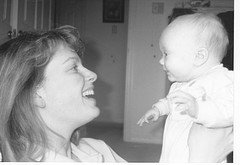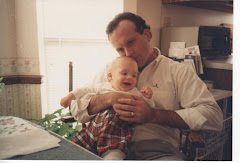I experienced a strange, familiar feeling Saturday night. I walked into my house late at night following a problem-plagued, deadline-intensive sports broadcast.
This is something I did quite routinely for twenty-five years. The nature of putting together a nightly sportscast at an under-equipped local television station is stressful. Combine a perfectionist personality and things can get intense pretty quickly. The late nights, the stress, the unreliable equipment all were factors in my decision three years ago to walk away from something I had done for a quarter-century.
I jumped back in with both feet Saturday, except in radio. It was fun in its own way, but I’m glad this is a part-time, seasonal pursuit. The Arena football team with which I’ve become affiliated opened its season, and the game didn’t go the way we had hoped; neither did the broadcast. Our team surrendered two scores for every one it made and lost, 63-34. If there had been more time, the other team would have actually doubled our score. Our guys demonstrated an utter inability to stop them. That’s important, but it didn’t affect me as directly as the broadcast of the game did.
I wasn’t intimidated by the idea of doing play-by-play for arena football. After all, all you really have to do is describe what you’re seeing. In this game, things happen quickly. All it takes is to remember a few key names, marry them in your mind with jersey numbers and then just say what you see. A broadcast isn’t a broadcast, however, unless you actually broadcast.
I had never worked with this equipment I was assigned to use. Certainly, I’m not a technical person. I’ve been on-air or management for decades. I’ve “run the board” at a radio station or two. I know the business end of a TV camera, to be sure. I know how to press the right buttons, flip the proper switches, and turn a knob here and there; but if something goes wrong, I absolutely am not your man. I was assured that this equipment was simple to work and easy to hook up. It certainly appeared that way.
At 6:00, with a pre-game show set for 6:40, I began the process of connecting my equipment to the equipment back at the “flagship station.” It should have taken two or three minutes, and I would have the rest of the time to organize my important papers, my thoughts, my pregame and half time shows. It didn’t happen. 6:40 came and went. Then, we passed by 6:45, 6:50 and 6:55 without even noticing. At 7:00, with kick-off less than five minutes away, they still couldn’t hear me back at the station.
With the game about to start, I made an executive decision. I was trouble-shooting this problem (quite unsuccessfully) by talking on the phone with the man running the show at the radio station. As the players took the field, I just said, “Carl this is it. Just put the phone on the air.” You’ve figured it out by now: I literally phoned it in!
I was holding a phone to my ear for almost four hours. I had no headset. I only had one hand to use. I couldn’t take notes or keep stats. I lost almost an hour of pre-game prep time. Other than that, things went well. The average listener apparently didn’t know anything was wrong. That means we did something right.
I came home about 10:30, just like old times. My wife was complimentary of what I had done, just like old times. I was obsessing about how much better it could have been if technical issues outside my control hadn’t interfered, just like old times. I had a great time. I’m looking forward to doing it again, only better, next time.
It was a little bit like going to mom’s house for dinner. It felt good, you’re glad you did it, but you’re also glad you moved away when you did.
Tuesday, April 11, 2006
Redefining Broadcast Excellence
Posted by
Darrell
at
4/11/2006
![]()
![]()
Subscribe to:
Post Comments (Atom)














No comments:
Post a Comment